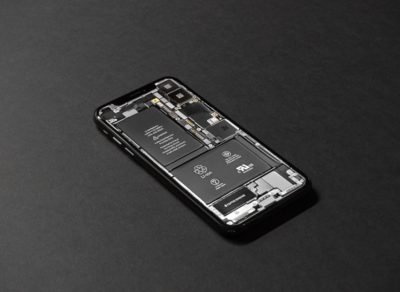Product Liability
The Car Parts Most Often Involved in Product Liability Cases

If you were injured in an accident caused by a faulty airbag, brake system, tires, seatbelts, or any other defective component, you might be able to seek damages to recover the cost of your medical bills and other expenses, such as lost wages and occupational therapy.
The Fire Danger of Modern Batteries

Our culture is permeated by electronic devices, and most of them use batteries. Advances in technology have improved batteries today. Many devices have rechargeable lithium-ion batteries, often built directly into the device. These long-lasting batteries can be found in laptops, phones, vaping devices, cars, airplanes, and a wide variety of gadgets. While they are highly efficient for power storage, the design of these batteries make them potentially dangerous. In some cases, they can explode and start fires.
Nissan Announces Mass Recall of Model Year 2013-2014 Vehicles Due to Air Bag Defect
Nissan recently announced a recall of more than 989,000 Nissan, Infiniti, and Leaf vehicles in the 2013-2014 model years, citing a problem with the air bag system’s software that could cause the front passenger air bag to fail to deploy in a crash.
The recall seeks to fix a problem with the vehicles’ “occupant classification system,” a software-driven safety feature that senses the approximate size of the passenger in the front passenger seat and decides whether or not to turn on the front passenger air bag based on this information. If a passenger appears to be too small to be safely protected by the air bag, the system will deactivate the air bag, so that it does not inflate in a crash.
Toyota Class Action Lawsuit for Sudden Acceleration Defect Ends in $1.6 Billion Settlement
In 2009 and 2010, Toyota Motor Corp. recalled more than 10 million vehicles worldwide due to sudden acceleration issues caused by sticky acceleration pedals and poorly designed floor mats. Owners of the recalled vehicles were not only put at serious risk of auto accidents, but also suffered significant economic losses as a result of the defective auto product.
According to Bloomberg, Toyota received final approval of a $1.63 billion settlement amount earlier this month in a major class action lawsuit filed on behalf of thousands of consumers. A U.S. District Judge in Santa Ana, California signed off on the agreement after receiving documentation stating how the money would be distributed. Toyota owners who lost money as a result of depreciation in the vehicles’ value would receive individual payments from $9.74 to as much as $10,000, depending on the model of the Toyota.
Importer Sentenced to Jail for Violating U.S. Product Safety Laws
The Department of Justice recently announced that the president of LM Import-Export Inc. has been convicted of conspiracy to traffic and smuggle counterfeit children’s products from China into the United States. The products were also in violation of the Consumer Product Safety Commission’s (CPSC) safety laws because they contained illegal amounts of lead and posed significant choking and aspiration risks to children due to small parts.
The defendant pled guilty to the charges against him and received a sentence of 22 months in prison, three years of supervised release and a fine of $10,000.
Power Train Defects Lead to Recall of 225,000 Honda Vehicles
Honda Motor Company, Ltd. has issued a recall affecting a total of more than 225,000 vehicles in the United States and Canada. According to reports from CNN, the recall is due to problems with transmissions, which may lead to a car rolling away after being parked.
Reports from the National Highway Traffic Safety Administration (NHTSA) have shown that sub-freezing temperatures may allow these vehicles to be shifted out of park without the brake pedal being pressed. If the gear selector is moved out of the park position with the brake pedal being pressed, the vehicles could roll away. This nonconformity is a violation of the Federal Motor Vehicle Safety Standard 114, “Theft Protection and Rollaway Prevention.”
2,500 Bike Helmets Recalled by Bell Helmets due to Risk of Failure During Crash
Since cyclists have few forms of protection while out on the road, the integrity of their helmets are vital in preserving their health. This makes a recall involving defective bicycle helmets all the more detrimental.
Bell Helmets has issued a recall for approximately 2,500 bike helmets that were sold at Toys ‘R’ Us due to safety issues that could affect riders. Due to a defect, the helmet’s buckle could release upon impact during a collision, allowing the helmet to fall off the rider’s head, according to BicycleRetailer.com.